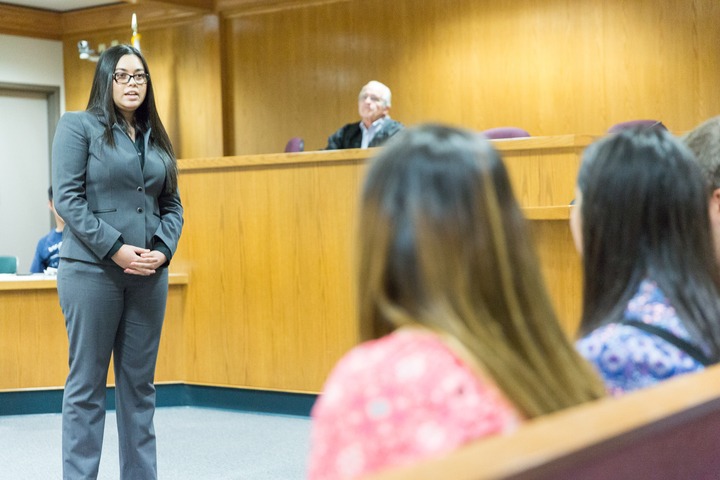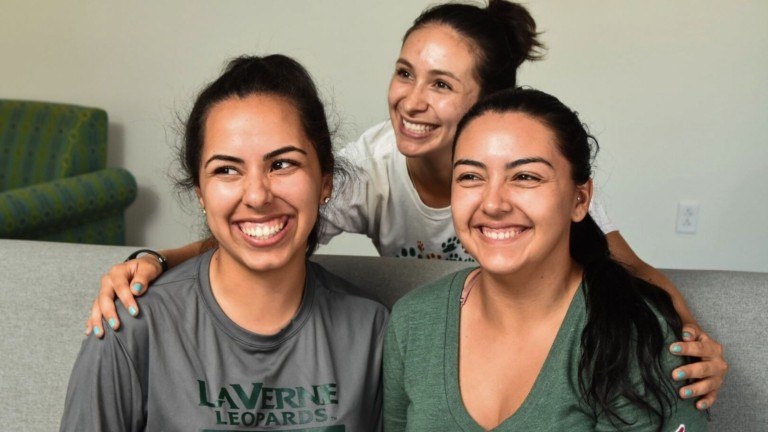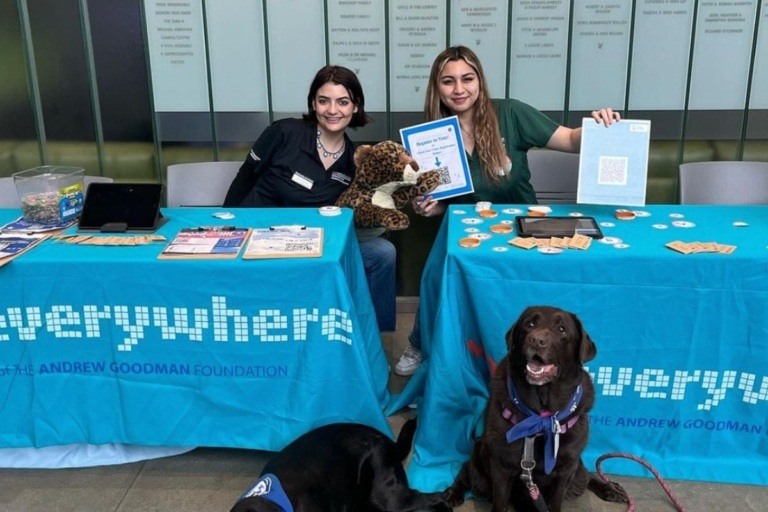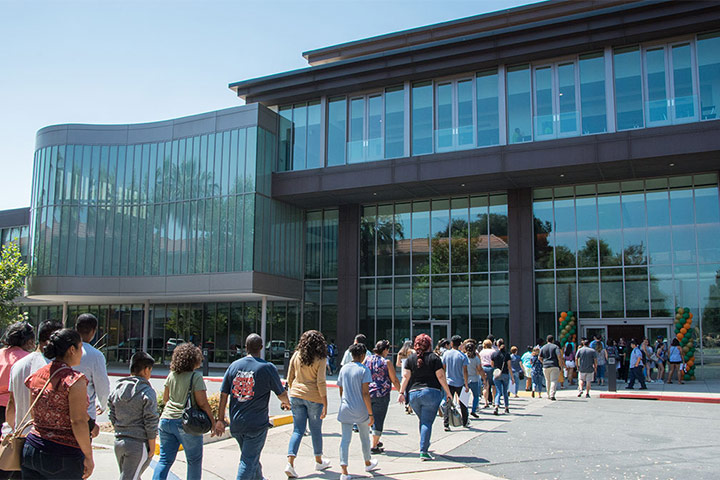La Verne Law and Undergrads Collaborate in Courtroom Simulation

After law students presented arguments in a simulated trial of a man charged in a gang-related murder, twelve jurors adjourned to deliberate the accused man’s fate.
But instead of waiting in suspense for the verdict, the law students watched the deliberations unfold live via video stream in the courtroom.
“This is what education is all about,” said Kevin Marshall, associate dean at the University of La Verne College of Law. “Courtroom drama, presentation, collaborative discussions among law students and undergraduates, students cross-informing one another providing professional critique; it was all there.”
The simulated courtroom scenario connects two of the University of La Verne’s signature curricular programs: the College of Law’s litigation track and the university’s undergraduate Freshman La Verne Experience, providing students from both programs an extraordinary, hands-on learning experience.
Undergraduate FLEX 21: Intersections of Law and Society students participated in the exercise on Nov. 14, serving as jurors, while law students practiced the role of attorneys in the criminal case. The simulation occurs annually.
“The experience of watching jurors deliberate is invaluable,” Professor of Law Michael O’Connor said. “It can be easy to forget that, for the most part, your cases are decided by non-lawyers. And, the human dynamics that control group decision-making are subtle and elusive. This collaboration put a lot of these concepts and issues on the table for both the law students and undergraduates.”
Law student Breana Vidauri said she gained confidence and knowledge from the experience. Interacting with undergraduate students and hearing their feedback about how law students presented their cases added a valuable dimension to the exercise.
“Usually when we do mock trials, they are in front of people you know – your fellow classmates or professors,” she said. “This was more like a real trial to me because I had to present my case in front of 12 people who had no idea what the case was about.”
The College of Law’s litigation track, taught by O’Connor and Professor of Law Placido Gomez, consists of three core courses: evidence, criminal procedure and trial advocacy. The law school tethers these courses using their common components to expose students to the basics of litigation. The curriculum binds these three core courses with a simulated case – a criminal case that students litigate at the conclusion of the trial advocacy course.
The law school also uses the litigation track, particularly trial advocacy, to bring experienced trial attorneys and judges to teach at the school.
The Honorable Martha Bellinger teaches a section of criminal procedure. The Honorable Gregory Tavill, public defenders Angela Howard and Melissa Hale, deputy district attorneys Justin Crocker and Robert Bullock, and attorneys David Goldstein, Jason Anderson, and Rol Sabado teach sections of trial advocacy.
The FLEX program is a component of the undergraduate La Verne Experience and features numerous learning communities designed to provide a cohesive educational experience for students who share similar interests. The program places first-semester freshmen into the same set of three classes.
FLEX 21 students take the classes “Introduction to Sociology,” “Notorious and Not: Legal Cases That Have Changed American Society,” and “College Writing” – taught by Visiting Professor of Sociology Dr. Glenn Goodwin, Gomez, and Megan Gallagher, adjunct professor, respectively. The FLEX Program encourages students to interact closely with each other inside and outside the classroom. Students observed part of a murder trial in San Bernardino Superior Court, one of numerous co-curricular activities included in the courses.


